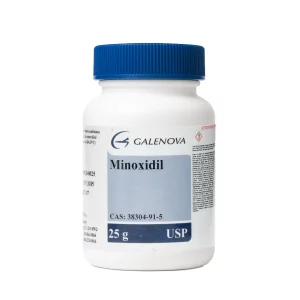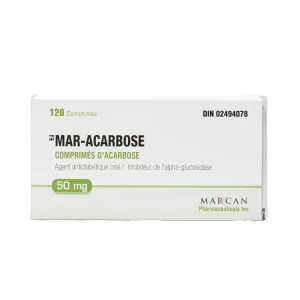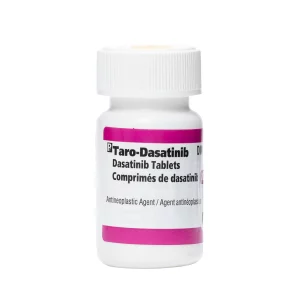Your cart is empty.
Your cart is empty.
The connection between blood sugar and brain function reveals fascinating insights into cognitive health and mental performance. Acarbose, a medication that stabilizes blood sugar levels, may protect and enhance brain health. Emerging research reveals surprising cognitive benefits. This medication connects to broader health strategies, including Acarbose for PCOS management and controlling Acarbose and blood sugar spikes that damage brain cells. For those interested in comprehensive brain protection, many choose to buy acarbose to boost their daily life for its enhanced cognitive function and mental clarity.
This guide explores the scientific mechanisms and research behind acarbose’s brain-protective effects, revealing how blood sugar control creates cascading benefits for cognitive performance, memory, and long-term brain health.
Glucose spikes cause oxidative stress in brain cells, damaging them and impairing function. Unstable blood sugar also triggers inflammation affecting brain blood vessels. Insulin resistance lowers the brain’s ability to use glucose effectively.

Acarbose stabilizes blood sugar, reducing stress on brain cells and inflammation. This improves blood flow and oxygen delivery, supporting better cognitive performance.
Studies in mice show acarbose improves memory, learning, and anxiety behaviors by affecting brain proteins and insulin signaling. Human research indicates it may protect against dementia in diabetes patients, though results vary.

Acarbose enhances memory formation by stabilizing glucose supply to the hippocampus. Animal studies showed improved spatial and non-spatial memory with long-term treatment. Better blood sugar control supports neurotransmitter function essential for learning and memory consolidation processes.
Stable blood sugar levels support sustained attention and concentration throughout the day. Mental clarity improves when the brain receives consistent energy without glucose spikes and crashes. Acarbose helps maintain cognitive processing speed by preventing metabolic disruptions. Users often report enhanced mental alertness and reduced brain fog during daily activities.
Long-term acarbose use may slow age-related cognitive changes by protecting against metabolic brain damage. Research suggests protective effects against neurodegenerative processes and dementia risk. Studies show preservation of cognitive abilities with aging through better glucose metabolism. The medication supports healthy brain aging.
Blood sugar stability supports emotional regulation and mood balance throughout the day. Acarbose may reduce stress responses and improve resilience to daily challenges. Research indicates improvements in anxiety-related behaviors and emotional stability. Consistent energy supply to the brain supports neurotransmitter balance essential for positive mood.
Acarbose optimizes brain energy utilization by providing steady glucose supply without overwhelming spikes. Improved cellular energy production supports all cognitive functions from memory to decision-making. Enhanced brain metabolism efficiency translates to better mental performance and reduced fatigue. Optimal nutrient delivery supports neural repair.
Stable blood sugar levels throughout the night improve sleep quality and brain recovery processes. Better glucose control reduces nighttime blood sugar fluctuations that disrupt sleep patterns. Quality sleep supports memory consolidation and cognitive restoration. Improved rest enhances next-day mental performance and emotional regulation.
The following information is based on protocols reported in scientific research and experts’ recommendations published in clinical studies. Dosages and treatment protocols must always be determined and supervised by qualified professionals. Under no circumstances should anyone self-medicate or modify treatment without medical advice.
Research typically uses doses similar to diabetes management, generally 150-300 mg daily with meals. Gradual dose increases help reduce digestive side effects and maximize blood sugar stabilization. Taking acarbose with meals supports consistent glucose control. Individual responses vary and require personalized medical guidance.
Cognitive benefits may become noticeable within weeks of consistent treatment, though full effects develop over several months. Short-term improvements include better focus and mental energy, while long-term benefits involve memory enhancement and neuroprotection. Animal studies showed significant progress after 3-6 months of treatment.
Acarbose works synergistically with brain-healthy diets rich in omega-3 fatty acids and antioxidants. Exercise enhances its cognitive benefits by improving blood flow and neuroplasticity. Cognitive training and mental stimulation amplify neuroprotective effects. Stress management and meditation support optimal brain function alongside glucose control.
Individuals with insulin resistance or prediabetes often show the greatest cognitive improvements, while middle-aged and older adults benefit most from brain protection against age-related decline. People experiencing blood sugar fluctuations frequently notice enhanced mental clarity. Those with metabolic syndrome may experience broader cognitive benefits.
Tracking memory performance, focus duration, and mental clarity daily can help assess benefits. Cognitive assessments measuring attention, processing speed, and executive function may provide objective data. Monitoring sleep quality and mood changes also indicates brain health progress. Collaboration with healthcare experts optimizes long-term outcomes.
Sustained acarbose use may preserve cognitive abilities throughout aging. Research suggests it offers protection from dementia and neurodegenerative diseases. Maintaining stable blood sugar supports healthy brain aging and neural network integrity. Buy Acarbose to boost your daily life, supporting steady energy, sharper focus, and long-term wellness.
Users report improved mental energy, clearer thinking, and better focus throughout the day. Many notice reduced brain fog and enhanced problem-solving. Some experience better emotional stability and stress resilience. Individual outcomes vary, influenced by metabolic health and other factors.
Mental clarity may improve within weeks, while memory enhancements typically develop over 3-6 months.
Research suggests protective effects in diabetes patients, though prevention studies in healthy individuals are limited.
Memory formation, sustained attention, and mental clarity show the most consistent improvements.
Healthy individuals with blood sugar fluctuations may experience cognitive benefits under medical supervision.
Acarbose offers unique metabolic-based enhancement through blood sugar stabilization versus direct neurotransmitter targeting.
Research spans various age groups, with older adults showing particular benefits requiring consultation.
Tong, C., Wu, Y., Zhang, L., Yu, Y., & Ye, J. (2015). Chronic acarbose treatment alleviates age-related behavioral and biochemical changes in SAMP8 mice. Behavioural Brain Research, 284, 138-147.
https://pubmed.ncbi.nlm.nih.gov/25698601/
Chang, C. H., Shau, W. Y., Kuo, C. W., Chen, S. T., & Lai, M. S. (2020). Dementia risk in type 2 diabetes patients: Acarbose use and its joint effects with metformin and pioglitazone. PLOS ONE, 15(5), e0219071.
https://pubmed.ncbi.nlm.nih.gov/32489710/
Yan, J., Yang, H., Li, X., Yu, Y., Wang, Y., Zhao, Y., & Ye, J. (2015). Long-term acarbose administration alleviating the impairment of spatial learning and memory in the SAMP8 mice was associated with alleviated reduction of insulin system and acetylated H4K8. Brain Research Bulletin, 114, 55-62.
https://pubmed.ncbi.nlm.nih.gov/25645154/
Zhou, M., Xie, L., Fang, C. J., Yang, H., Wang, Y. J., Zhen, X. C., & Yu, J. (2022). A cocktail of rapamycin, acarbose, and phenylbutyrate prevents age-related cognitive decline in mice by targeting multiple aging pathways. GeroScience, 44(4), 1729-1744.
https://pubmed.ncbi.nlm.nih.gov/38755466/Zhou, M., Xie, L., Lin, Q. S., Xie, Y., Wang, Y. J., Zhen, X. C., & Yu, J. (2022). Enhancement of impaired olfactory neural activation and cognitive capacity by liraglutide, but not dapagliflozin or acarbose, in patients with type 2 diabetes. Diabetes Care, 45(5), 1201-1209.
https://pubmed.ncbi.nlm.nih.gov/35263425/





Unlock savings on bundles and elevate your online experience today!